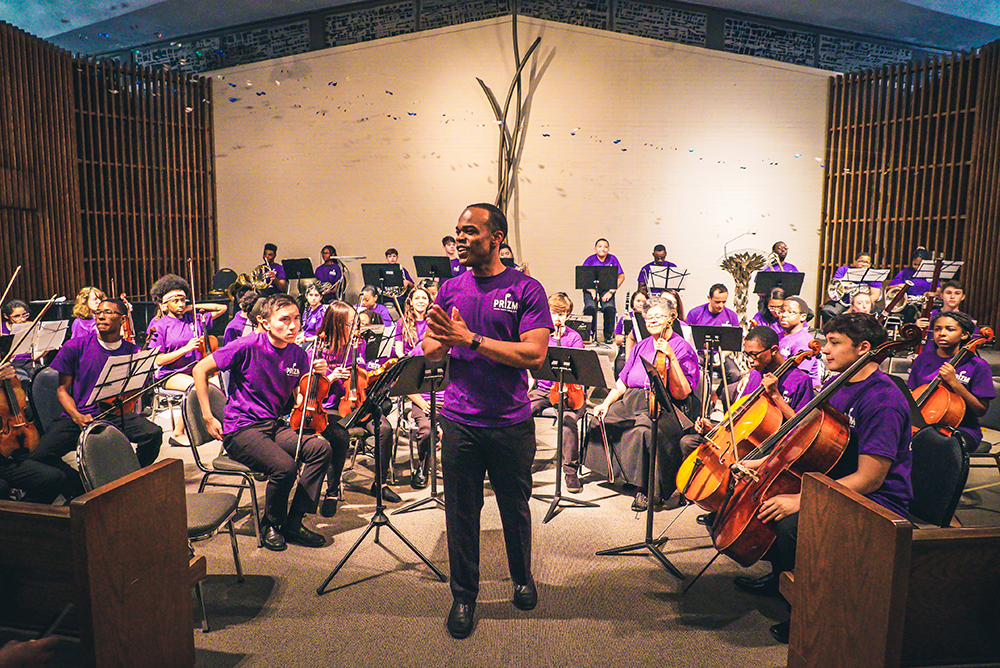Now in its 12th year of music instruction, the PRIZM Ensemble (prizmensemble.org), centered on the strings, woodwinds, and brass of chamber music, is one of the most respected institutions serving Memphis youth. Its absence last summer, due to COVID-19 concerns, was a heavy blow to many aspiring musicians, so students and parents alike are heartened by PRIZM’s return next Monday. But as the pandemic lingers on, class sizes are being limited to a fraction of what they were at the program’s height.
“We have lowered our numbers significantly,” says Rod Vester, PRIZM’s executive director. “Our goal was 25 students, and as of yesterday we hit that number. Typically we have 90-100 students. So it’s a drastic decrease this year. But rightfully so.”
The faculty has been trimmed back as well and limited to only local instructors, which has in turn affected what had previously been one of PRIZM’s defining qualities: its international character. In 2017, then-executive director Lecolion Washington was especially proud of the diversity of PRIZM’s instructors, drawn from around the globe. “There are so few African-American classical musicians in the country that most of us know each other,” he said. “There are certain programs that happen every year or every other year. … A lot of us know each other from all these other programs. So, essentially, what we’re doing is putting Memphis on the circuit.”
Such a reach proved impossible during the pandemic, so, as Vester explains, “We have all local faculty this year, which is not the norm for us. Typically we have faculty coming from Sweden, from Africa, from everywhere. We’re always thinking about diversity in everything we do here — not just diversity in opinions and perspectives and gender, but also racial and ethnic diversity. So when we think about that, there is a shortage, in a sense, of people of color in classical music here in the city.”
Yet the adaptations to a world of social distancing have also led PRIZM to grow in unexpected ways. Students this year will notice something new on the agenda: a third week of online courses in video production, music technology, and social justice and activism in music. “I started teaching online classes in music technology at the beginning of the pandemic last year,” Vester says. “Those virtual courses are now included in this year’s curriculum. We have our in-person summer camp and festival, which is intensive classical music study for two weeks. And then the virtual programming in week three.”
Still, Vester considers the in-person instruction to be the heart and soul of PRIZM. Taking place at Shady Grove Presbyterian Church from June 21st-July 2nd, the classes offer daily instruction on strings, woodwinds, and brass, as well as advanced music theory and history and master classes. The camp closes with all students performing in a final public concert alongside their peers and instructors on the last day of each week.
As Vester explains, the focus on chamber music was very much a pedagogical decision. “It’s more about all the other soft skills that students develop. They can really develop in small groups, and that is why we chose chamber music — because you are all leaders in a chamber group. There’s no one conducting. There’s a lot of accountability. You have to learn your part, know your part, and then communicate with your group members.”
These skills are valuable no matter what students pursue, Vester says. “Some have gone on to study music, but that’s not something we encourage or discourage, honestly. We simply use music as a tool to connect students.”
